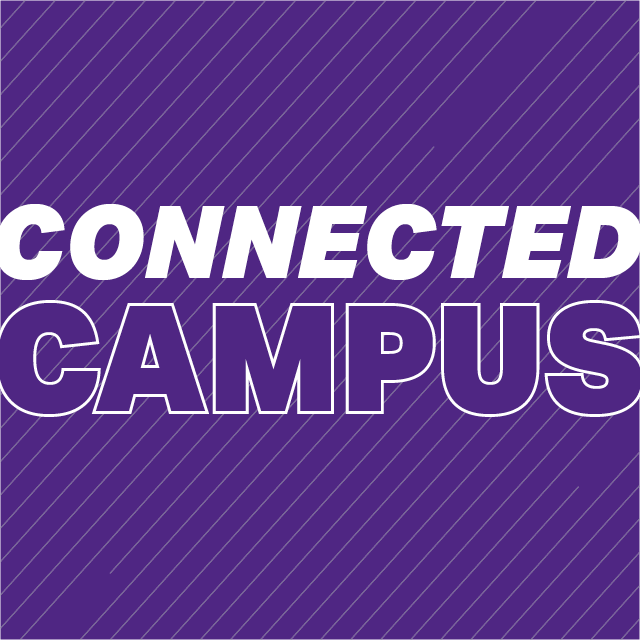Planning for a fall semester like none before it required a campuswide effort of creativity and determination. Working around the clock this summer, TCU faculty and staff rose to the challenge to ensure that Horned Frogs — whether learning online or in person — are enjoying the academic excellence and unique TCU experience that makes this learning environment so special.
Prepared and ready to teach online after completing intensive summer training, professors are well equipped to offer effective, engaging classroom experiences virtually. From every corner of campus, faculty members are finding new ways to innovate their online, in-person and hybrid classrooms. Below are just a few highlights from TCU’s classrooms.
New classroom experiences
Preparing future educators, counselors and leaders isn’t easy during a time of social distancing and face covering requirements. While learning about the social foundations, societal structure and professional lives of teachers can be done online or in person, classroom observation during a global pandemic requires some creativity. This fall, students in the College of Education will watch more videos of teaching for their observation component, which will enable them to see the whole picture in a classroom — not just what’s happening at a certain point in time.
Also reimagining classrooms is the College of Science & Engineering, where each discipline — from mathematics, engineering and environmental sciences to ranch management and geology — requires a unique approach to teach through online or hybrid environments. Among the solutions: real-time Zoom sessions incorporating a virtual human cadaver to teach about anatomy and tools such as the Apple pencil to sketch statistics problems on a virtual whiteboard.
Tech innovation
When orientation began July 6, the 60 members of the TCU and UNTHSC School of Medicine’s second class made history as some of the first across the country to begin medical school in a completely virtual environment. The pandemic has emphasized how important it is for physicians to understand the ways technology can help them effectively treat and communicate with patients.
When spring classes went online, Mikio Akagi, assistant professor of the history and philosophy of science in the John V. Roach Honors College, decided to set up a makeshift studio in his living room. In addition to hosting Zoom calls, he recorded and produced lecture videos, often editing late into the night. He compiled a technical guide of tips and tricks for teaching remotely that he shares on his website. Among the biggest takeaways? Audio is king.
Disrupted, not derailed
When the pandemic swept across the nation in the spring, classes weren’t the only learning experiences forced online — many internship opportunities also went virtual. Confusion, insecurity, rapid changes — nothing deterred Neeley School of Business interns as they quickly adapted and maximized their virtual opportunities. And when six MBA students lost their internships due to the pandemic, they switched gears and partnered with the Fort Worth Chamber of Commerce — for free. Their research will help shape tools and resources boosting the local business community’s economic recovery.
Creating real-world experiences for learners, Harris College of Nursing & Health Sciences’ social work program is providing opportunities for students to complete components of their social work internships virtually. Some field placements allow students to meet with clients through telehealth appointments, and others have increased student access to macro-level social work tasks, such as assisting with program design and evaluation.
The show must go on
Theatre TCU is going “off book” for fall 2020. Due to safety precautions during the pandemic, the College of Fine Arts won’t be able to host in-person audiences at events. But students will still perform. Developed by faculty members, Theatre TCU’s A.D.A.P.T. Projects — an acronym for academics, design, application, performance and technology — will give theatre majors the opportunity to channel their talents into new works of their own creation to be shared virtually.
When the pandemic grounded a strategic communication study abroad program, Stephen Levering, instructor II in the department in the Bob Schieffer College of Communication, was determined to create a virtual London experience for students in his “Images” elective. Bringing British culture to their laptops and desktops, he used photos, videos and the Google Arts & Culture website for online visits to London landmarks. Among students’ favorite projects was recreating artwork from London’s Dulwich Picture Gallery using at-home resources.
AddRan College of Liberal Arts professors have found new, virtual ways to welcome students back to class. In addition to the traditional services — Academic Advising, Career Services and co-curricular programs — that will still be readily available throughout the semester, AddRan is implementing a new program called AddRan Ambassadors, where a select group of students will serve as guides to the liberal arts experience at TCU.
